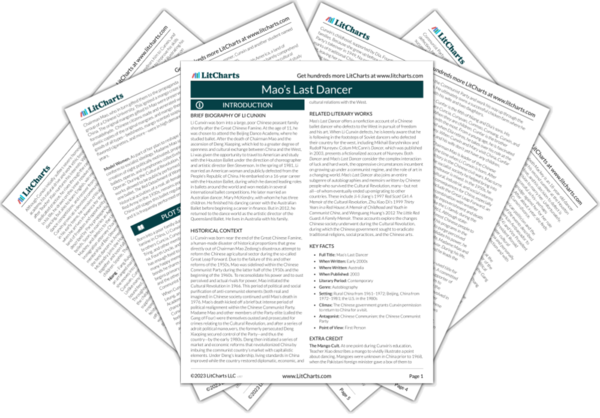AI ToolsNew
Tools to make learning and teaching easier
|
Previous
A Wedding: Qingdao, 1946
|
Mao’s Last Dancer: Chapter 1: Home Summary & Analysis |
Next
Chapter 2: My Niang and Dia
|


Upgrade to unlock the analysis and theme tracking for all of Mao’s Last DancerMao’s Last Dancer!
Get LitCharts A+